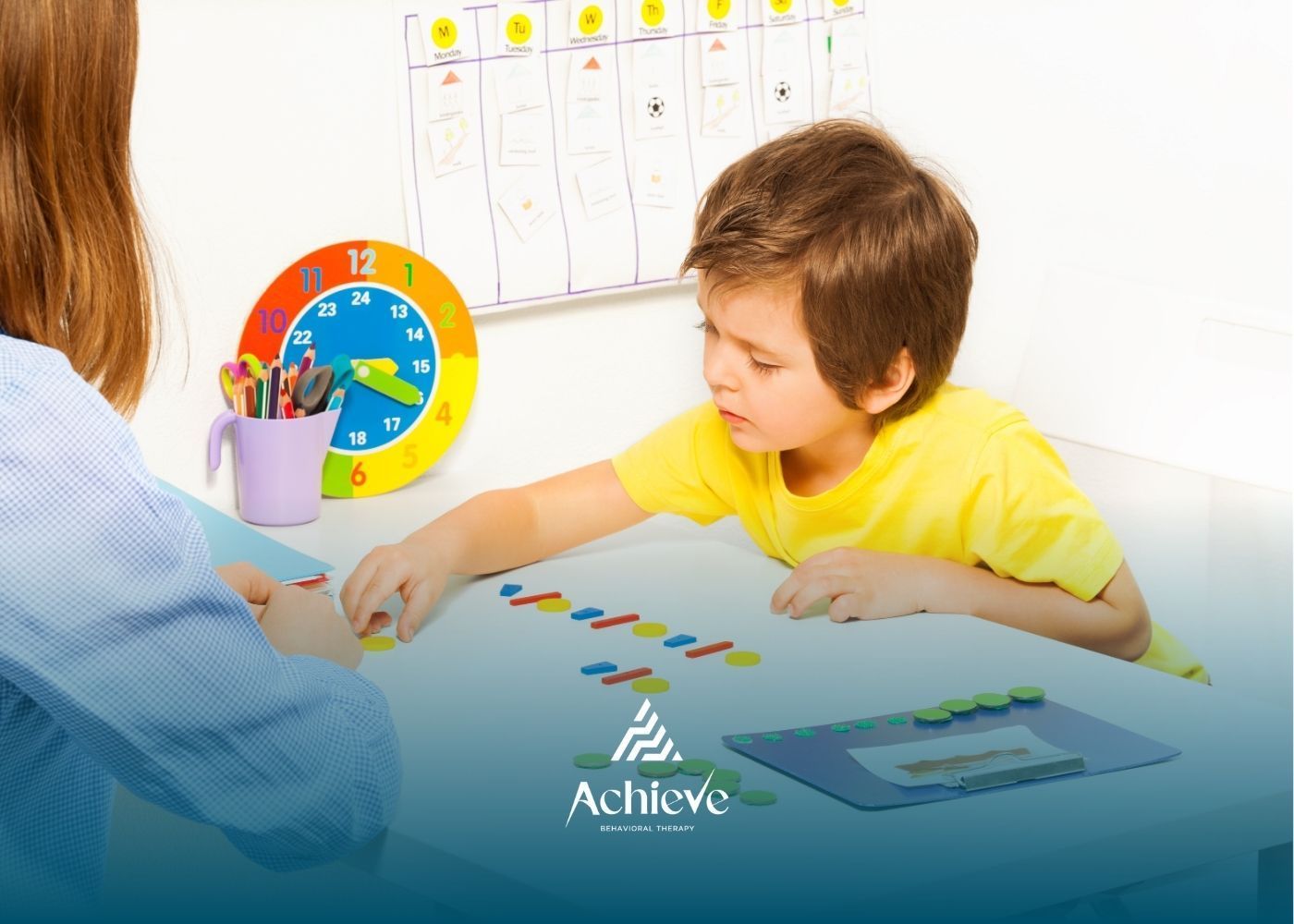The Most Important Qualities of a Great ABA Therapist

As a parent, you want an ABA therapist who understands your child—not just someone who checks boxes on a list of qualifications.
I’ve seen parents light up when they finally feel heard during our first meeting. One mom said, “You actually listened to me about my daughter’s struggles.” That’s when I knew: the best ABA therapy starts with listening.
In this blog, I’ll walk you through what to look for in an ABA therapist—drawing from both research and my experience working with children and families.
Why the Right ABA Therapist Matters
ABA therapy is evidence-based, but it’s not a “plug-and-play” program. Every child is different, and the therapist’s approach, personality, and communication style all influence how effective therapy will be. The right ABA therapist helps your child:
- Build communication and social skills
- Reduce challenging behaviors
- Gain independence in daily routines
- Develop confidence and motivation
But beyond your child’s progress, the right therapist also makes you feel supported as a parent. ABA isn’t something that happens in a bubble; it’s a team effort. A good therapist makes you feel like a valued partner in the process.
Professional Qualifications and Training
Of course, qualifications matter. Before you commit to a therapist, make sure they have the appropriate training and are working under proper supervision.
Certification and Credentials
Ask if your therapist is a Board Certified Behavior Analyst (BCBA) or a Registered Behavior Technician (RBT) working under a BCBA. These credentials mean the therapist has met specific training and ethical standards in applied behavior analysis.
Specialized Experience with Autism
Autism spectrum disorder is complex. A therapist who has worked with children with autism will have the hands-on knowledge to adapt techniques to your child’s strengths and challenges. Don’t hesitate to ask how long they’ve been working with autistic children and what age groups they’re most experienced with.
Ongoing Professional Development
ABA therapy is always evolving. A strong therapist should keep learning—attending workshops, keeping up with research, and refining their skills. Ask about continuing education and how they stay up to date.
Personal Qualities That Make a Difference
Qualifications are just the foundation. What often makes or breaks the experience is the therapist’s personality and approach.
Patience and Calmness
Progress can take time. There will be hard days, and meltdowns are part of the process. The right therapist stays calm under pressure, never shames your child, and celebrates small wins along the way.
Strong Communication Skills
A good therapist explains strategies clearly to both children and parents. They’ll give you regular updates, walk you through data, and translate “ABA language” into simple terms you can apply at home.
Adaptability and Creativity
No two kids are alike. A therapist who can pivot—whether that means adjusting a reinforcement strategy or finding a new way to teach a skill—shows they’re focused on what works for your child.
Genuine Compassion
Perhaps the most important trait is compassion. The best ABA therapists truly care about your child as a person, not just a set of goals. They connect with your child’s interests, celebrate their individuality, and build trust through kindness.
Building a Relationship with Your Child
The bond between your child and their therapist is at the heart of effective ABA therapy.
A Child-Centered Approach
The right therapist takes time to get to know your child—their favorite toys, songs, and activities. These personal touches keep sessions fun and motivating.
Respect for Family Culture and Values
Every family has its own culture, traditions, and parenting style. A good therapist respects this and works with you, not against you. You should feel like a partner in shaping goals and strategies.
Consistency and Reliability
Children thrive on consistency. A dependable therapist who shows up on time and keeps routines predictable gives your child a stronger sense of safety and trust.
Questions Parents Should Ask Before Choosing
I always encourage parents to interview therapists before committing. Here are some thoughtful questions you can ask an ABA therapist:
- What is your experience working with children on the autism spectrum?
- How do you handle challenging behaviors during sessions?
- How do you keep parents updated on progress?
- Can you describe a time when you adjusted your approach to fit a child’s needs?
- What does success look like in ABA therapy to you?
The answers to these questions will give you insight into both their professional skills and their values as a therapist.
Red Flags to Watch Out For
Sometimes, knowing what to avoid is just as important as knowing what to look for. Be cautious if you notice:
- A lack of transparency about progress or data
- Limited communication with parents
- Harsh or outdated techniques
- An unwillingness to adapt methods
- Little genuine interest in your child’s individuality
Trust your instincts. If something doesn’t feel right, it probably isn’t the right fit.
The Parent’s Role in ABA Therapy
One thing I always emphasize: parents are not just bystanders in ABA therapy—they’re essential partners.
A strong therapist will invite you into the process, teaching you strategies you can use at home and encouraging your feedback. The more involved you are, the more consistent the support your child receives across different settings.
I’ve seen children make tremendous progress when parents and therapists work hand-in-hand. That partnership is where the magic happens.
Supporting Families Beyond Sessions
A truly great ABA therapist goes beyond teaching the child. They support the family too. That might mean:
- Helping parents manage stress around meltdowns
- Offering strategies for smoother daily routines
- Collaborating with teachers to support your child at school
- Celebrating progress with the entire family
Therapy is most effective when it’s holistic—supporting the child in all the environments where they live and learn.
At Achieve ABA, we know how important it is to find the right therapist for your child. That’s why we focus not only on professional training but also on compassion, communication, and family partnership.
Our team in New Jersey and North Carolina provides both in-home ABA and school-based ABA, so families have flexible options that meet their needs.
Every child deserves a therapist who sees them for who they are and helps them grow with patience and care. That’s what we aim for in every session.
If you’re searching for an ABA therapist who will support both your child and your family, contact us today to get started.
FAQs
How do I know if an ABA therapist is qualified?
Look for BCBA or RBT credentials, supervised practice, and specific experience working with children on the autism spectrum.
Should parents be involved in ABA therapy?
Absolutely. Parent involvement is essential for success. A strong therapist will teach you strategies to use at home and value your input.
What qualities make a good ABA therapist?
Patience, adaptability, strong communication skills, consistency, and genuine compassion are all key qualities that make therapy effective.
Sources:
- https://www.bacb.com/rbt/
- https://www.bacb.com/bcba/
- https://www.appliedbehavioranalysisedu.org/bcba-certification/
- https://www.thechicagoschool.edu/insight/career-development/bcba-guide-bcba-certification-exam/
- https://www.psychology.org/resources/bcba-meaning-career-overview/
Need Support?
We're Here to Help!
Our experienced team is ready to assist you. Reach out today to discuss how we can support your child's development and well-being.
Get started with expert ABA therapy today.






